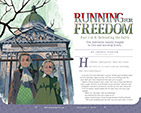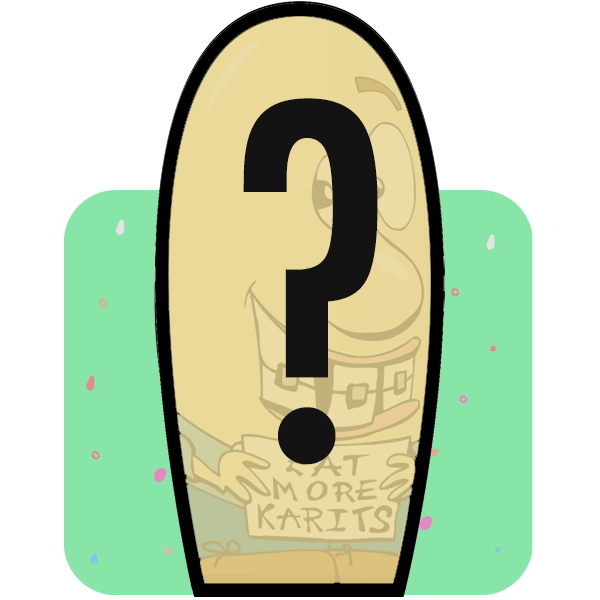Hi, Marika,” Julia greeted. “Since
the teacher isn’t here yet, we want to ask you something that’s been bothering
us.”
It was early. The school bell
hadn’t rung yet. Thirteen-year-old Marika faced her two classmates, Ágnes and
Julia, who had come strutting across the room. Both girls’ faces showed that
they were up to no good.
Marika’s tummy tensed at Julia’s
words. Ever since an illness had held her back a grade, she’d felt
uncomfortable around classmates. Whenever they whispered or pointed in her
direction, she felt sure they were making fun of her for being in seventh grade
with her sister, Ilona, who was a year younger.
“What is it?” she asked. “Did I do
something?”
Julia elbowed the other girl to
speak up too.
Ágnes moved forward, closing the
gap between herself and Marika.
“We’re just wondering why we never
see you or your sisters in church on Sundays,” Ágnes asked. “Doesn’t your
family go to Mass?”
Marika stood silent for a moment,
wondering what to say. She knew they wanted to embarrass her, to force her to
confess that her family, unlike most Hungarians, was not Catholic. She wasn’t
ashamed of their religion, but she didn’t want to argue about it either.
Stalling, Marika fingered one pigtail and looked out the window, pretending to
think of an answer while silently asking God to give her the words.
Seconds later she felt a rush of
courage. She turned and looked directly into Ágnes’ steel-gray eyes. “We never
go to Mass because we aren’t Catholic. But we do go to church every week on the
Sabbath. That’s Saturday.”
“Saturday?” the girls said in
unison. They gave each other puzzled looks, shaking their heads in disbelief.
Ágnes leaned closer, backing Marika
against the chalkboard.
“Why would you do that?” she demanded.
“It’s stupid to go to church on Saturday! That’s when
everyone works! My papa works every Saturday in his grocery store, all day
long. Don’t you know you’re supposed to go to church on Sunday? The priest says
so!”
Marika felt her courage fading. She
glanced at the classroom door, hoping to see the teacher entering. But the door
remained closed while the other students busily talked in small groups. Even
Ilona was busy and hadn’t seen what was happening. Only God could help her.
Finally she decided to ignore Ágnes
and focus on Julia, who wasn’t acting as mean.
“My family is Seventh-day Advent-ist.
We honor the Sabbath because that’s what God’s Word says to do. You can read it
for yourself.”
Julia looked doubtful, but she
pulled on her friend’s sleeve to make her step back. “Come on, Ágnes, let’s go.
The teacher will be here any minute.”
As they turned to leave, Ágnes gave
Marika one last defiant stare.
“I’m going to look that up,” she
challenged, “even though I know you’re wrong.”
Relieved that the incident was
over, Marika nodded and found her seat. Besides worshipping on Saturday, she
wondered how she could explain that her family’s faith was different from other
religions in many ways. For Marika and her family, religion was a lifestyle,
not something done only at church once each week.
That was sometimes a problem in a
Communist country. The year was 1963, and the Russians still governed Hungary.
This meant people didn’t have much freedom to go to church as they pleased or
choose the job they wanted. Communists encouraged disloyalty among family
members, coworkers, and friends through bribes and other incentives. This made
everyone distrustful of each other.
Marika remembered how Mama had told
her about losing their house in the small town of Gödöllö, where Marika was
born. When Marika was 4, the government had taken the house from her family to
give to a Communist official, just because he’d admired its neat, clean
appearance. After that, the family had moved to the nearby city of Budapest.
Two years later Marika had watched
the Hungarian people try to fight for more freedom and food in something called
an uprising. But Russian tanks had entered the city to stop it, killing
thousands of protestors. The loud noise had woken Mama up and made her cry.
Budapest had been bombed for days, and everyone had been afraid.
Because of that fear, Marika was
never sure if a question about her religion was just someone being curious, or
teasing to be mean, or something much worse, something that could get her
parents into big trouble with the government. Papa had warned his girls to be
careful, to watch what they said about God and freedom, even to their friends.
As the oldest, Marika understood that if something bad did happen, there would
be no way to fight back or force the government to treat them fairly.
When school was finished for that
day, she and Ilona walked home with their youngest sister, 8-year-old Erzsébet.
The winter air felt chilly as they wound through their neighborhood to the big
house they shared with two other families. It was really an old mansion
confiscated by the government after a wealthy Jewish family had abandoned it to
escape harsh Russian control. With so many people living there, it didn’t seem
very fancy. But Mama and Papa did what they could to make their part of the
house feel more private.
Coming around the path, they
entered the house through their own private doorway. They passed through the
front room, where Mama and Papa slept, and went to the larger back room that
doubled as a living and dining room during the day and a bedroom for the three
sisters at night. Beyond that room was the kitchen, where Mama was humming and
making an afternoon snack.
“Hi, Mama.” Marika gave her mother
a big hug. “Is that lemonade? Can you put in extra honey with the club soda?
I’m really thirsty!”
“Sure,” her mother responded with a
loving nod. “You go back to the living room and sit in front of the oven. I’ll
bring it when it’s ready.”
“Beigli too?” Erzsébet begged.
“Yes, beigli too.”
The tired trio settled down as one
on the rug in front of the huge green-tiled ceramic oven in the corner of the
room. Its black iron door was open, and the burning logs glowed orange with
wonderful warmth. They could have sat on the sofa bed where they slept at
night, but they liked being on the rug. In the other corner were two tall
wardrobes for their clothes, with a dining table, a radio, and a record player
nearby.
“Would you like some help with your
math homework later?” Ilona asked Marika.
Marika nodded, but didn’t think it
would do much good. She just wasn’t good at math, as Ilona was. She liked
creative things, such as cooking and sewing. Ilona, on the other hand,
preferred science and electronics, especially when she could get her hands on a
small appliance that could be taken apart and put back together. She even took
apart their electric iron, forcing Mama to use the heavy iron that had to be
heated on the stove.
“You’ve got to try,” Ilona
encouraged her. “We’ll do every problem together.”
Mama came in with their snack.
“Come sit at the table, girls,” she urged.
They grumbled but obeyed. To
disobey Mama or Papa was unthinkable!
Munching the homemade beigli, a
pastry with sweet poppy seed filling, Marika thought ahead to the rest of seventh
grade. School already felt like the kind of heavy burden Papa’s donkey, Violet,
carried. Would it always be like that? Or would eighth grade open up a whole
new world?


